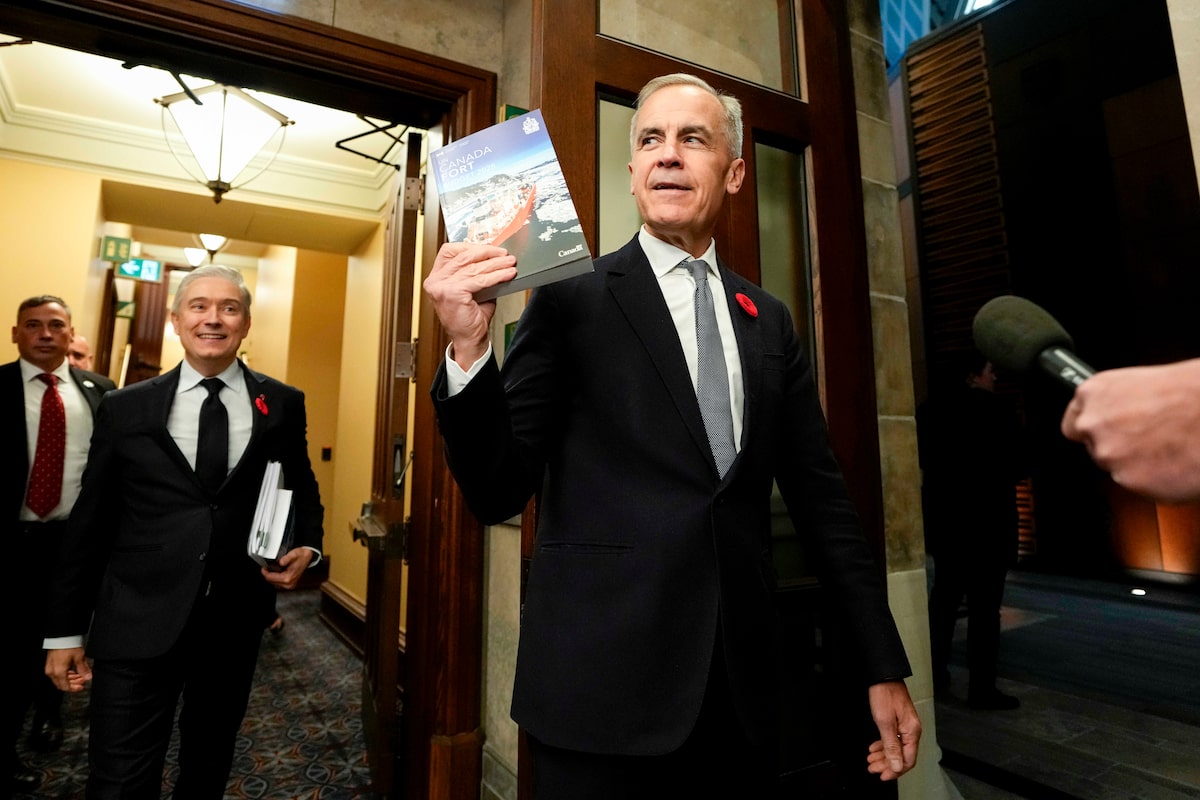Critics are questioning whether Mark Carney’s government promised enough funding in the 2025 budget to spur homebuilding.Justin Tang/The Canadian Press
Critics of the federal budget’s approach to housing policy say the government plan reneges on campaign pledges from Prime Minister Mark Carney, and are questioning Ottawa’s ability to spur homebuilding with the amount of funding that’s promised.
Academics and builders’ associations say the Liberal government’s commitments to reduce municipal development charges and increase funding for Build Canada Homes – a new federal entity that will bring the government into the home-building business – were watered down.
The Liberals’ campaign promise to cut taxes on multi-unit residential buildings, which would have been aimed at incentivizing rental apartment construction, was absent from the federal budget, said Mike Moffatt, an economist and founding director the Missing Middle Initiative at the University of Ottawa.
Federal budget 2025: Eight ways the budget affects your wallet, from vacant homes to student loans
Canadian Home Builders Association CEO Kevin Lee said the budget also retreated from the government’s campaign pledge of halving municipal development taxes. Such charges have risen by 700 per cent in the past two decades and play a large part in making housing unaffordable, he said.
Instead, Prof. Moffatt said the budget states that it will endeavour to reduce charges “substantially,” allocating $1.2-billion annually to the measure. That’s down from the $1.5-billion the Liberals pledged in their election platform.
Marc Lee, senior economist with the Canadian Centre for Policy Alternatives (CCPA), said the budget provides slightly over $6-billion of new money towards Build Canada Homes, a key part of Mr. Carney’s election platform. That’s instead of the $11.8-billion promised by 2028-29 in the campaign.
The new federal housing agency, which launched in September, will build non-market, affordable housing with developers. The initial plan is for the government to build 4,000 homes in six cities on federal land.
“It very well could be a good start, but my concern is that it’s not going to scale up fast enough,” Mr. Lee said.
“The fiscal commitment is pretty weak … it’s not what I would think of as a generational investment.”
In an e-mailed statement to The Globe and Mail, the Finance Department said the government is taking “bold action to unlock supply and bring affordability back within reach.”
“Federal dollars invested in Build Canada Homes will be leveraged to attract private capital, investors, and builders to expand the housing supply,” spokesperson Marie-France Faucher said. “We are putting the conditions in place to catalyze maximum investment while mainstreaming advanced methods of construction, with the potential to cut building timelines by up to 50 per cent, reduce costs by as much as 20 per cent, and lower emissions by approximately 20 per cent during construction.”
Mr. Moffatt said the major housing initiative that the government did include in the budget is its plan to drop the goods and services tax for first-time homebuyers purchasing homes costing under $1-million.
What the Carney budget hit and missed on promises to young Canadians
The budget estimates that 40,000 Canadians will take advantage of the program each year, but Mr. Moffatt thinks the number will be much lower. An analysis from the Parliamentary Budget Office earlier this year expected slightly more than 10,000 buyers to use the program per year.
Mr. Lee from the CCPA also questioned whether this GST cut would actually help lower house prices, as developers could raise prices and eat into any tax savings for buyers.
The Canadian Home Builders Association (CHBA) said the Liberals also missed an opportunity to expand GST relief to all new homebuyers and renovations that would add new units, which could incentivize a variety of housing types. The group said that could help create new housing types, helping seniors downsize and free up family-oriented homes.
Meanwhile, the CHBA’s Mr. Lee raised the alarm that a larger percentage of housing starts are going toward rental housing rather than homes for ownership. He said “the dream of home ownership is slipping,” and that while rental housing is important, housing meant for ownership needs to be prioritized to keep prices from inflating.
He also said the budget was a missed opportunity to set immigration targets for people with trade skills that are needed to help Canada meet it’s homebuilding aspirations.
“Twenty per cent of our industry is set to retire over the coming decade, and we don’t have enough Canadians to backfill the positions, so we really need the immigration system to work in favour of bringing people to build homes,” Mr. Lee said.

